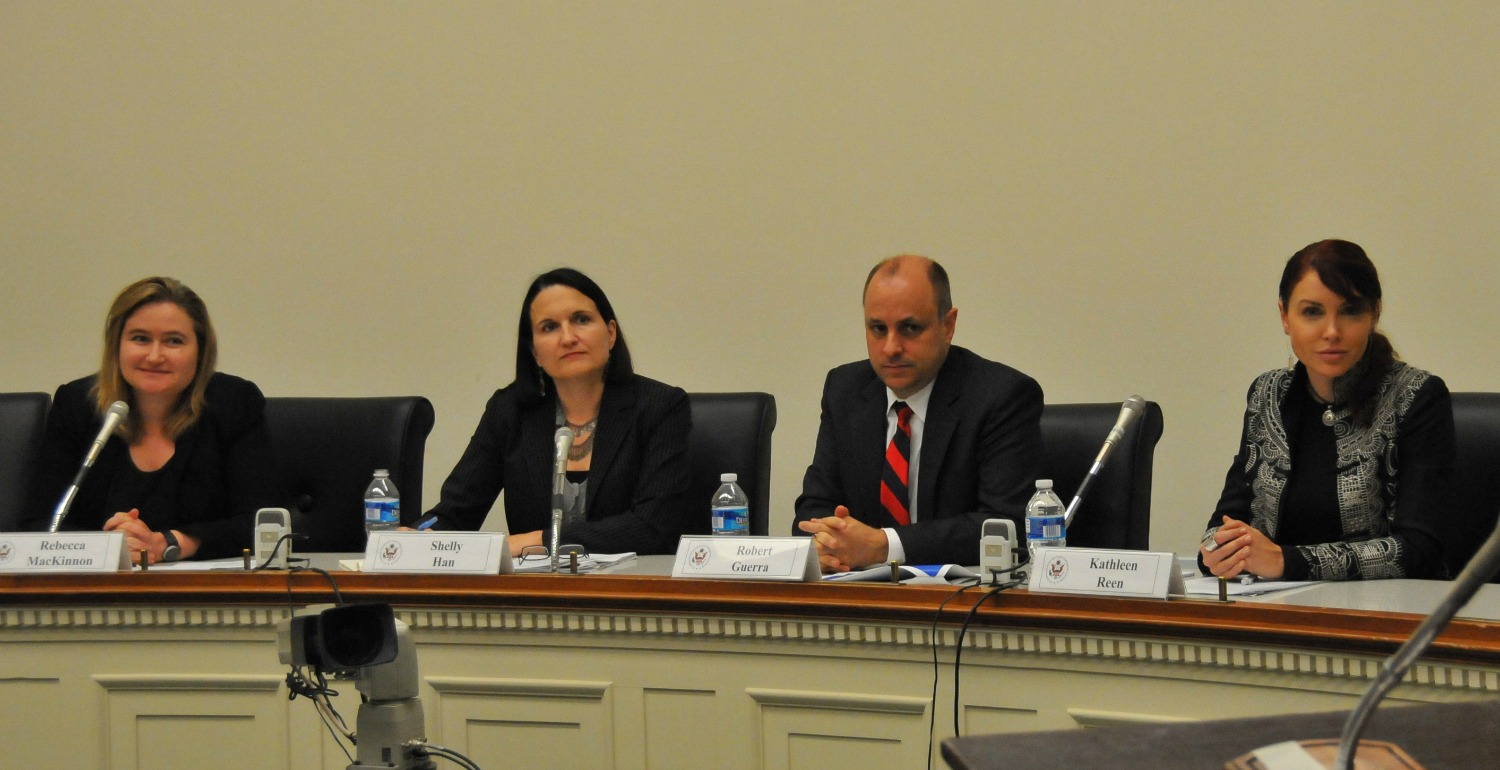The briefing examined the ways in which the Arab Spring showcased the important role of social media in helping dissidents organize protests. Shelly Han, policy advisor at the Commission, also highlighted how these same platforms can be just as useful as surveillance and detection tools for governments. Han emphasized the importance of the spread of ideas as a foundation to social movements in history.
Witnesses from Internews, Freedom House, and Global Voices talked about the changes in technologies and social media platforms that enabled dissidents to access information and to communicate. They discussed ways in which business practices, regulations and foreign policy can help or hurt activists in repressive countries.





